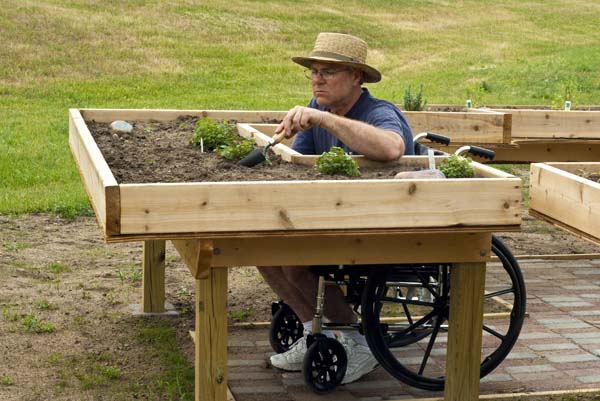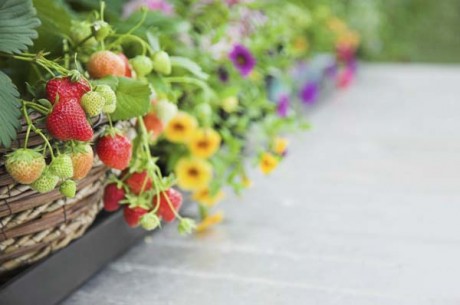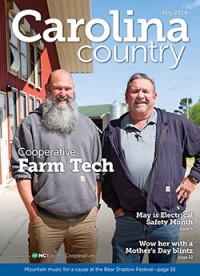Gardening for everyone
Ideas abound for disability friendly, small-space plantings
By Katie Lamar JacksonGardening has been proven to be good for mind and body. Fortunately, you don’t need access to a yard and don’t have to be perfectly healthy or fit to garden. You just have to adjust the garden to fit your needs.
Lack of space
You can garden inside a fourth-floor walkup or a retirement home apartment by using containers and plants suited for your rooms. Choose potted houseplants that require less sunlight and will grow in your indoor “climate.” If your apartment tends to be dry, especially in the winter, pick plants that don’t need lots of humidity or keep them in the bathroom.

Don’t let circumstance or location rob you of gardening’s many benefits. You can create a garden, regardless of your age, ability and residence, if you suit it to your needs.
Easy-to-manage pots
Put your plants in manageable pots — not too heavy or on wheels to move them about — and put trays underneath so water doesn’t drip on floors. Fill the pots with a lightweight, well-drained growing media, such as peat or sand, so you won’t add extra weight or promote root rot problems.
Patios and balconies
Not satisfied with houseplants? Try window boxes! They work beautifully for sun-loving plants and are ideal for many annual ornamental plants, herbs and even some vegetables such as salad greens.
Another container option for indoor or small-space gardening is the planting bag, which is filled with a soil mixture designed so you can plant directly into a bag and add water and fertilizer as needed. They can be expensive, but are quite effective. Hanging baskets are also a great option for small-space gardening, though keep in mind that they require frequent watering.
If you have access to a patio or roof, you can grow a wider range of plants. Always get permission from the building owner if you are using a roof or other public space. There, you can use potted plants or build wooden or brick frames as garden beds. Trellising or caging crops can also save space.
Raise plants for access
In addition to being ideal for small spaces, raised beds and container plantings can reduce or eliminate the need to bend or kneel. Build the beds to a height that suits your needs for standing or sitting, or place pots on pedestals or risers. Select plants that will not get so tall that you can’t reach or see them with ease. When mixing several plant sizes, locate shorter plants in the front so that they are visible, easy to reach and won’t be shaded.
Sight and memory impairment
People with low vision issues can lay out the beds in a simple, easy-to-see fashion and use brightly colored plant markers and colorful flowers and foliage. The blind can put in fragrant flowers and herbs — or plants such as lamb’s ear — that are pleasant to touch. Adding wind chimes, rustling grasses or water fountains also adds enjoyment.
Gardening is also possible and therapeutic for people with memory-loss disorders, such as Alzheimer’s disease. Keep the garden simple to manage and navigate and consider using plants that trigger pleasant memories.
-
Share this story:




Comments (1)
robert faires |
September 25, 2018 |
reply